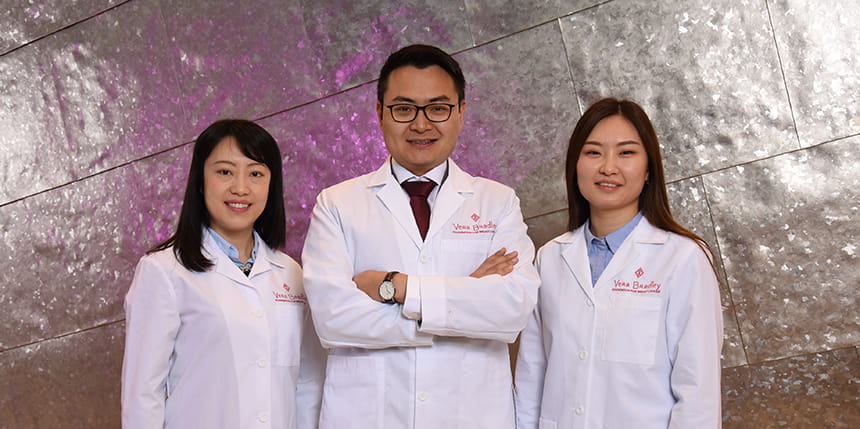Ryan Higgins, PhD (2019-2020)
As a postdoctoral researcher in the laboratory of Chunhai “Charlie” Hao, MD, PhD, Dr. Higgins studied drug resistance, often an unavoidable problem for cancer patients.
His work included developing a new class of drugs that degrade tumor targets instead of blocking their function. In Dr. Hao’s lab, he identified a promising compound effective in treating breast cancer cell lines, specifically in triple negative breast cancer.
Selected publications and presentations
Bellail AC, et al. Ubiquitination and degradation of SUMO1 by small-molecule degraders extends survival of mice with patient-derived tumors. Sci Transl Med. 2021 Oct 13;13(615):eabh1486.














